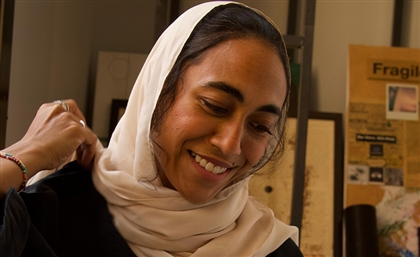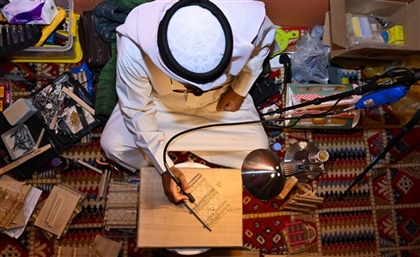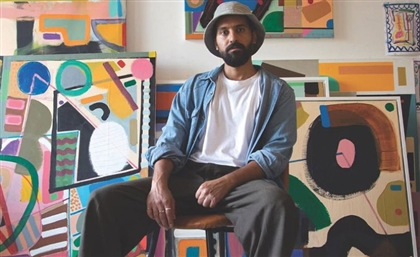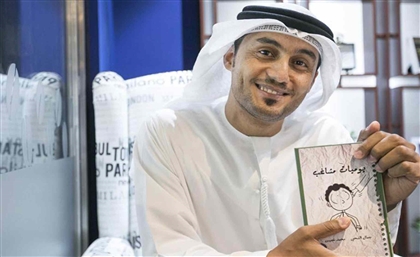MetaMosque: The VR Platform That Lets You Explore the World’s Mosques
This virtual reality application is allowing Muslims to connect as they “visit” some of Islam’s most iconic spaces.

With its iconic golden dome, copper-plated doors, and intricate mosaics in turquoise, green, white and gold gleaming above white marble, the Dome of the Rock is one of the most important and gorgeous sights in Islam, and holds a great significance to many. For 90-year-old Um Mufid, the mosque holds a personal importance – it was the place she worshipped for most of her life since her childhood. But when she was forced to leave Palestine during the 1967 Nakba, she never thought she would see the iconic mosque ever again. It would be a dream for Um Mufid to return to the Dome of the Rock – and now, with the help of her daughter, Samera Abed, that dream is becoming a reality. More specifically, a virtual reality.
MetaMosque is a virtual reality platform connecting Muslims around the world, allowing them to explore sites like Makkah, the Dome of the Rock, Al Aqsa Mosque and more from the comfort of their home. Users can explore these spaces as though they are actually there, admiring architectural details and taking in their rich heritage.
Abed came up with the idea for MetaMosque while spending a day with her family. On a whim, she asked her son, Zeky Alkhasawneh, if he could use his virtual reality headset to show Palestine to Um Mufid.
“She was mesmerised when she saw the Dome of the Rock,” Alkhasawneh, who is now one of MetaMosque’s co-founders, tells CairoScene.
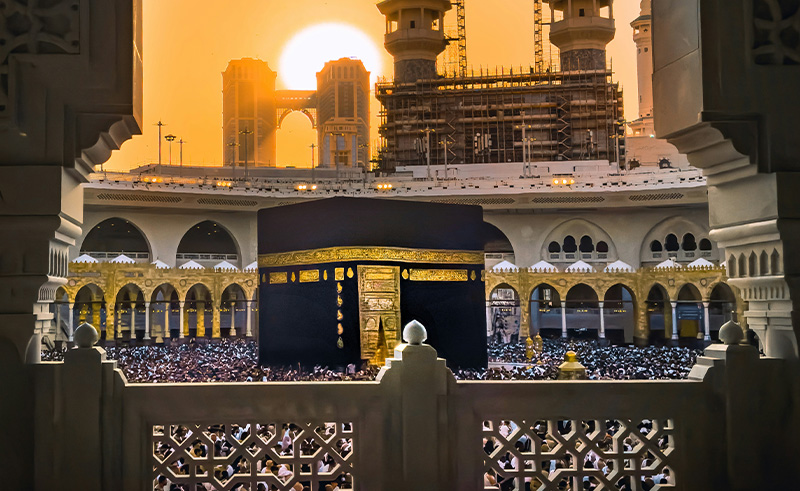 This interaction set Abed’s mind buzzing. She realised that virtual reality could help others in the Palestinian diaspora reconnect to their roots – and serve as a powerful tool to help Muslims in other ways as well.
This interaction set Abed’s mind buzzing. She realised that virtual reality could help others in the Palestinian diaspora reconnect to their roots – and serve as a powerful tool to help Muslims in other ways as well.
Once again, Abed found inspiration in her mother. Um Mufid has several mobility issues that make it difficult for her to go to the mosque. She performs her prayers at home, which has long led Abed to worry about how her mother can stay connected with her community and her faith. But after seeing her mother’s excitement when paying the mosque a virtual visit, she realised that there are lots of ways technology can make Islam and Muslim communities more accessible. Now, in addition to allowing its users to visit incredible Islamic monuments, this platform allows users to connect socially with others all over the world.
“I get these amazing emails from people,” Abed says. “I got an email from a man who lives in a place that isn’t very friendly to Muslims. He told me that he’s scared to go to mosque but the app is helping him stay connected to his community.”
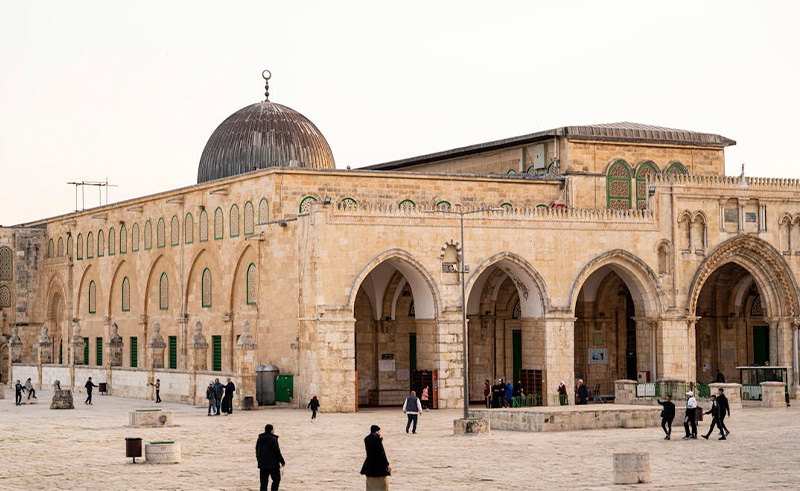 Um Mufid has played an integral role in MetaMosque’s development process. She is the first person to use all of the app’s features, and her input has helped guide the direction of the platform. For example, Um Mufid’s tests revealed that, although VR technology could be a great tool for people with limited mobility, many headsets’ controls can be difficult for people with physical disabilities to operate. In response, the MetaMosque team created controls that allow users to navigate their platform with the swipe of a finger, which is a much more manageable system for those with impaired motor skills.
Um Mufid has played an integral role in MetaMosque’s development process. She is the first person to use all of the app’s features, and her input has helped guide the direction of the platform. For example, Um Mufid’s tests revealed that, although VR technology could be a great tool for people with limited mobility, many headsets’ controls can be difficult for people with physical disabilities to operate. In response, the MetaMosque team created controls that allow users to navigate their platform with the swipe of a finger, which is a much more manageable system for those with impaired motor skills.
“If she can do it at 90, I think everyone can,” Abed says, with a laugh.
This inclusiveness is a hallmark of MetaMosque. The platform is providing all Muslims with new ways to interact with their faith. Take the Hajj, for instance. This pilgrimage is one of the most important duties a Muslim has, but for some, financial and physical limitations can put this journey out of reach. For these people, MetaMosque provides a way to experience the beauty of Makkah from home. Another popular feature of the platform is its Muslim AI Companion, a chatbot that allows users to explore religious questions through artificial intelligence.
Abed is clear that the platform is in no way equivalent to performing the Hajj, Umrah, or any of the rites associated with Islam. However, it does open an avenue for Muslims all over the world to engage with these holy experiences.
“I’m able to give people their dreams,” Abed says.
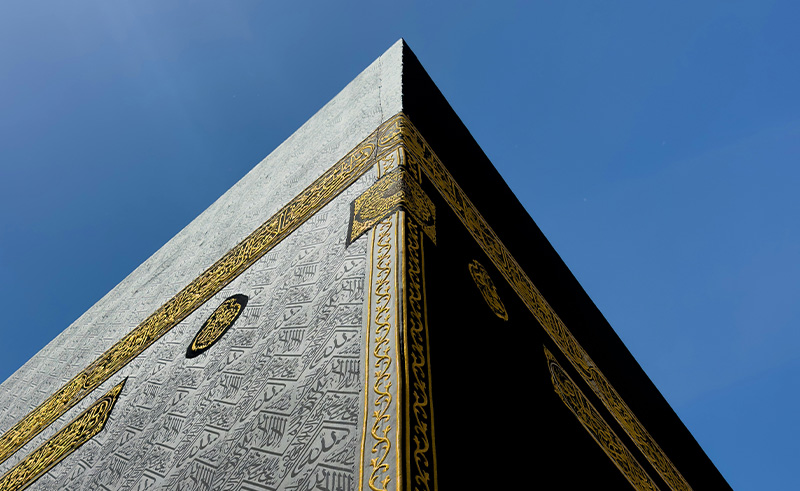
Not only is Abed fulfilling the dreams of the global Muslim community - they have brought her dream to life as well. In the two years since Um Mufid first tried on a VR headset, there has been an outpouring of interest in the MetaMosque platform. More than 3,000 people signed up for the app’s beta phase, and, according to Abed, this community’s excitement grows with each new update.
For Abed and her family, this support is heartening. However, Abed cannot ignore the ongoing violence happening in Palestine. “The genocide in Gaza has cast a pall over all of this,” Abed shares. “I want to celebrate our milestones, like getting on the app store, but it’s been difficult to celebrate anything.”
At the same time, this latest chapter in the 75-year history of Palestinian occupation has fueled the MetaMosque team. More than ever, Abed sees the importance of connecting people through faith and providing Muslims with access to sacred spaces. Although the platform may eventually turn to offering subscription-based services or exclusive access to some features, Abed has promised that it will always be free for MetaMosque’s users to visit the Al-Aqsa and Al-Haram mosques.
“I am so happy to offer this,” Abed says. “I feel like it’s my purpose now.”
MetaMosque is available for download on iOS, Android, PC and MetaQuest platforms.
- Previous Article Italian-Palestinian Duo No Input Debuts Eponymous Electro EP
- Next Article Quran Preserved on Bitcoin as First-Ever Digital Artifact








